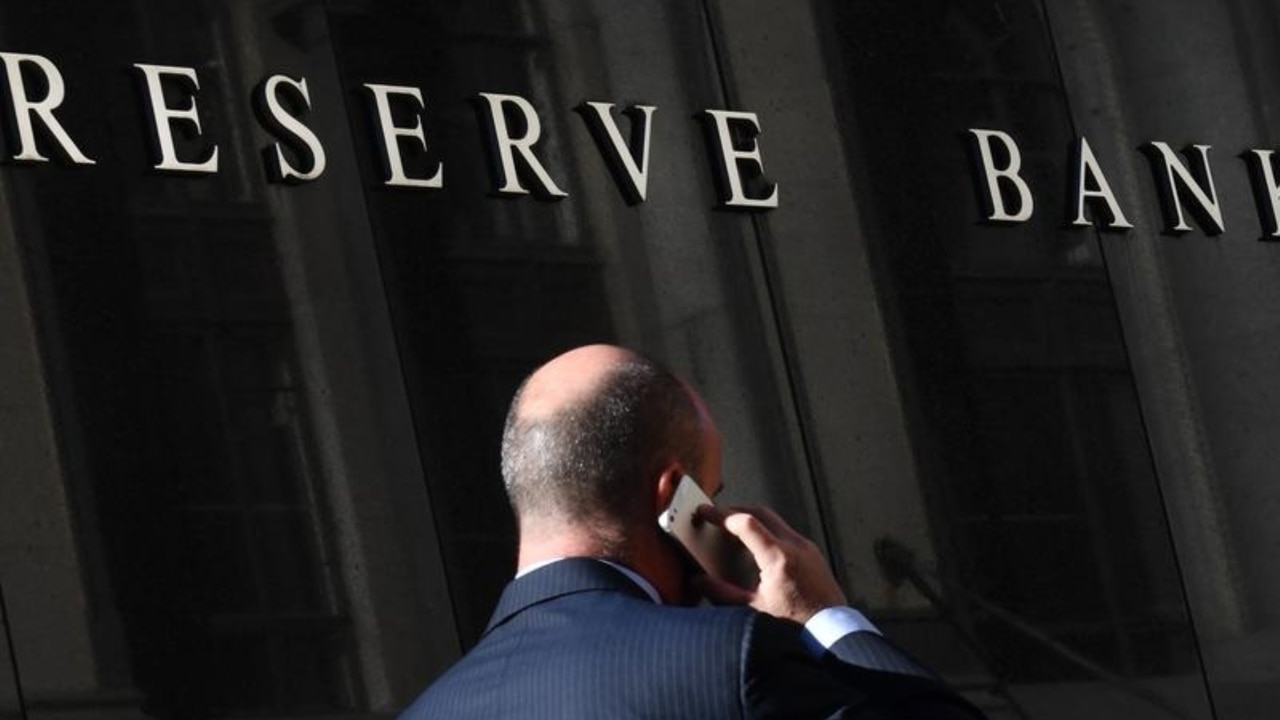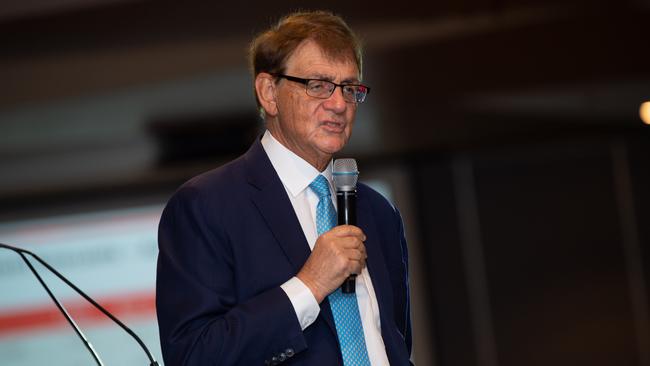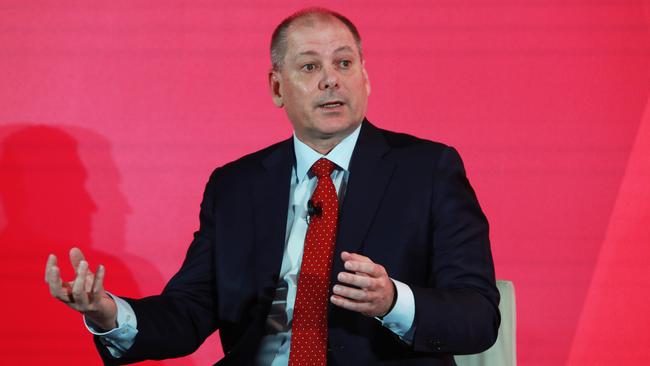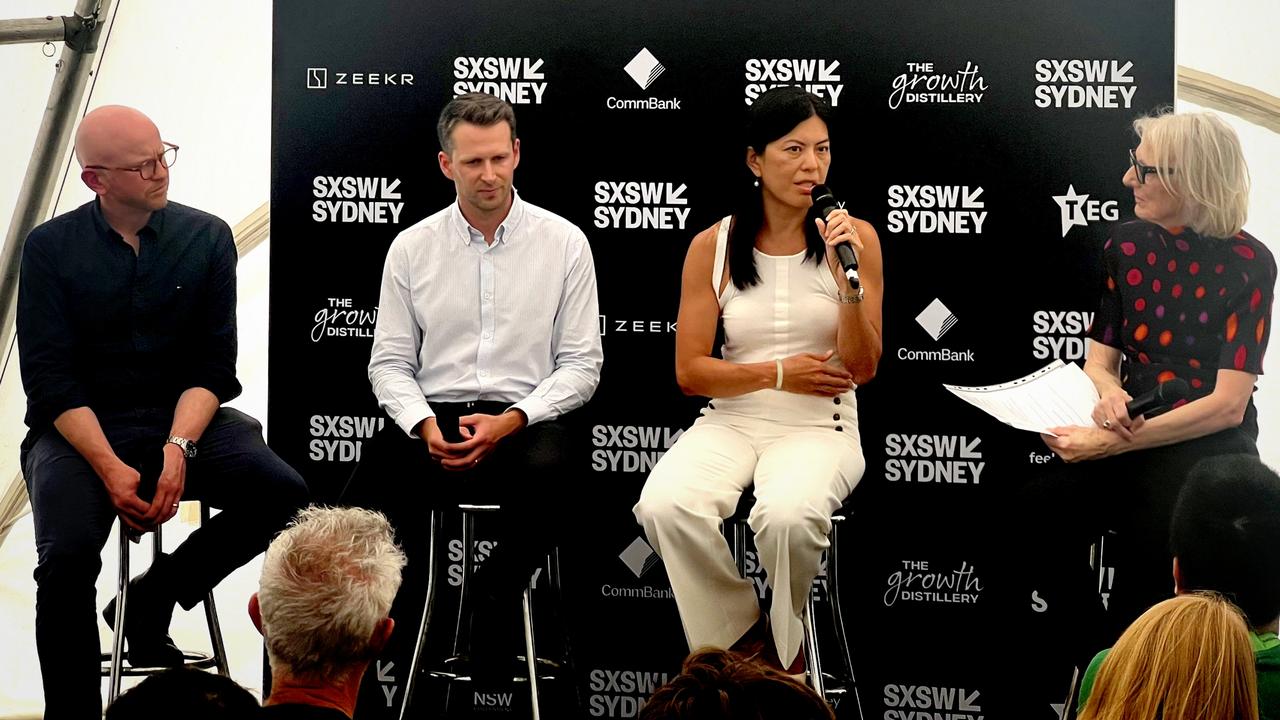Westpac economist Bill Evans warns rate rises leaving borrowers at their limits
Westpac’s chief economist Bill Evans says the Reserve Bank may have underestimated the level of variable-rate borrowers with no spare cash or capacity if the official rate hits 3.6 per cent.

Business
Don't miss out on the headlines from Business. Followed categories will be added to My News.
Westpac’s chief economist Bill Evans says the Reserve Bank may have underestimated the level of variable-rate borrowers with no spare cash or capacity if the official rate hits 3.6 per cent, as he also signalled prolonged housing market weakness.
Mr Evans cited RBA data estimating 15 per cent of variable-rate borrowers would have negative spare cash flows if the official rate climbed to 3.6 per cent, but said those numbers were based on tranches of loans packaged up as bonds and sold to investors. He noted those loans typically performed better than broader mortgage portfolios.
Mr Evans – who expects the RBA to eventually lift the cash rate to 4.1 per cent from the current 3.35 per cent – cautioned several further rate hikes would “put more pressure” on the RBA’s modelling of potential borrower home loan and cash flow stress.
“The modelling that they used is on the banks’ securitised portfolios and the securitised portfolios tend to be in better shape than the overall portfolios, they tend to have better borrowers in there. So it may be that they’re understating that degree of stress,” he said at a Westpac customer event on Monday.
“It’s going to be a very tough time … there’s lots of pain out there.”
RBA analysis has showed 10 per cent of variable rate borrowers would struggle if rates rose to 3.6 per cent, while 15 per cent would have negative spare cash flows. Some of these borrowers would need to draw down on savings to continue to meet their loan payments, but the RBA said other borrowers would have “limited ability” to do that.
Mr Evans said despite some borrowers doing it tough, about 50 per cent of variable rate home loan borrowers were more than a year ahead on their interest payments.
While he believes monetary policy is working to cool consumer demand and slow the economy, Mr Evans said there was a case for household support measures in May’s federal budget.
“There is a real argument in the budget for some targeted support for people who are absolutely in hard times,” he added. “I suspect that the government will see that.”

Mr Evans also noted the slated end of the low-and-middle income tax offset, which would hit some household balance sheets.
The central bank is aggressively lifting the cash rate to curb rampant inflation through the economy and is widely expected to deliver a 10th consecutive hike at its monthly policy meeting on Tuesday.
National Australia Bank personal executive Ben Nicholls on Monday said while most of the bank’s customers were ahead on their home loan repayments, and were in “good shape”, there would be customers that struggled through the current climate.
“We know that’s not the case for everyone ... and some customers are facing increasing pressure from a rising cost of living and higher interest rates, which is why we’re here to help,” he added.
“We help more than 90 per cent of customers get back on their feet financially within 90 days when they speak to us early.”
ANZ chief executive Shayne Elliott this week said further RBA rate hikes would hit borrowers “much harder” as many reach a tipping point on swelling repayments, while inflation remains stubbornly high.
His comments come as some borrowers bump up against the 2.5 per cent – or more recently 3 per cent – buffer that banks nominally added to their rates when assessing their ability to repay if the cash rate climbed.
Westpac’s chief executive Peter King on Monday said the nine rate hikes so far were “hitting some Australians really hard”, although the impact varied across the economy.
“After a strong (Covid-19) recovery, we’re now entering a slowdown. Prices are through the roof, interest rates are going up and depending on where you sit there will be opportunities to grow and prosper or you may need to adjust to survive … the impacts (of higher rates and a slowing economy) will be felt in a very uneven way,” he added.
Mr King said Westpac – founded in 1817 – was in a “good position” to navigate the trickier period ahead for the bank and its customers.
“We have seen the ups and downs of what Australia has been through.”
He highlighted that the nation was entering the slowing macro economic environment in a position of strength.
“For Australia unemployment is very low, incoming migration is strong and we are slowly getting on top of the inflation challenge,” Mr King said.
Westpac expects the unemployment rate to rise to 5.25 per cent by the end of 2024, from 3.7 per cent currently, as the economy slows and the supply of labour normalises largely through immigration.

Mr Evans expects it will be some time before the housing market recovers from declining prices and softer demand.
“The weakness in the economy will win out on the housing market, until it’s clear that they’re (the RBA) cutting rates,” he said.
“It’s that very weak rump, and where that’s distributed around the country. I suspect that part of the country will struggle quite a lot to participate on the rate on hold story.”
Mr Evans said some buyers would, however, seek to capitalise on opportunities in the housing market ahead of the RBA’s next rate cutting cycle.
Westpac also used Monday’s customer event to outline its new purpose and tagline “creating better futures together”. That is more than three years on from an embarrassing scandal that saw the bank pay a record $1.3bn penalty to Austrac, due to millions of breaches of anti-money laundering laws.
In addition to that, the bank also announced a new $500m fund set up to back female-led start-up companies. The fund will provide unsecured loans of between $10,000 and $50,000 for up to three years.
More Coverage
Originally published as Westpac economist Bill Evans warns rate rises leaving borrowers at their limits





